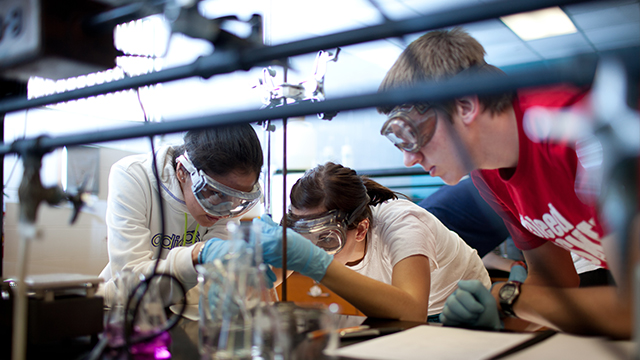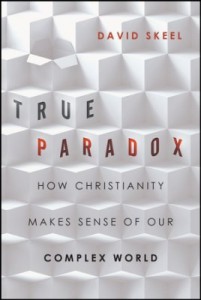Would You Become An Immortal Machine? This brief review of a new book on transhumanism, To Be a Machine by Mark O’Connell (Doubleday, 2017) asks, Since “The Fall,” we “lost” our god-like immortality, and have been looking for ways to regain it. Can science do this? Is mortality merely a scientific question?
Items included on this page come from a variety of sources. The perspectives conveyed may or may not express a Lutheran ethos. They can serve our instruction as discussion-starters, examples (positive and negative), and illustrations of intersections between God’s two kingdoms, intersections sometimes characterized by tension, sometimes by congruence. Inclusion does not imply endorsement.

Building Synthetic Embryos
A New Form of Stem Cell Engineering Raises Ethical Questions: The journal eLife reports that researchers can now produce synthetic embryos by assembling stem cells that will then organize themselves into biological structures. This technique may make it possible to produce specific tissues and organs including synthetic human entities with embryo-like features: SHEEFs. See also Addressing the […]
Jumping Genes: Four Articles
KRAB zinc-finger proteins contribute to the evolution of gene regulatory networks: the science journal Nature has published new research on transposons, indicating ways in which the human genetics system is species-specific and suggesting the protein activity of “KZFPs contribute to make human biology unique.” See also: The proteins that domesticated our genomes Harnessing the Human […]
Gilbert Meilaender on CRISPR Gene Editing
Gene Editing: Promise & Peril–Is Caution Enough? This Lutheran bioethics scholar comments on CRISPR: What is deemed necessary is the use of countless embryos—always, of course, with caution and with relief of suffering as the ultimate end in view. [And] there remains one further possibility on the gene-editing horizon. Beyond basic research, there is the possibility […]
The 2017 Eclipse as an Act of God
The first solar eclipse to cross America in 99 years is coming. To some, it’s an act of God: The total solar eclipse that will cross America this summer — an event that last happened 99 years ago — will be an important moment for scientific observers and a massive nationwide spectator event. It will also, […]
A Non-Theistic Take on the Fine-Tuned Universe
The Earth Has Oceans And Continents: How Weird Is That? This essay offers students an example of how the thoughtful non-theist discusses the puzzles and perplexities of creation and natural order: “Continents and oceans, we have them both. But it didn’t have to be this way. And on most planets, it probably isn’t. And, here, I […]
Is Science Open? Closed? or just Method?
A Film Editor In The Land Of Astrophysicists: Continental drift, worlds in collision, and microbes too small to see–all ideas rejected by science in earlier times. But this case study offers students some discussion on why and how science engages with some hypotheses and not others, and why this is both not-so-good and good.
Big Science: Truth, Trust, and Faith
Can We Trust Science? — We are sometimes asked, “Do you believe in science?” Upon reflection, this question is a bit puzzling, and its weasel word is “believe.” This article can assist students with teasing out some of the issues around the nature of science, belief, reliability, and other basic epistemological questions.
Six Facts About the Evolution Debates
For Darwin Day, 6 facts about the evolution debate: This piece from Pew begins by saying, “When Darwin’s work was first made public in 1859, it shocked Britain’s religious establishment.” That statement itself needs more attention, and Darwin’s work was initially received with mixed responses. Nevertheless, here are Pew’s six facts for today.
Embryonic Autonomy and Life’s Beginning
Self-organization of the human embryo in the absence of maternal tissues: Remodelling of the human embryo at implantation is indispensable for successful pregnancy. Yet it has remained mysterious because of the experimental hurdles that beset the study of this developmental phase. Here, we establish an in vitro system to culture human embryos through implantation stages in the […]


 True Paradox: How Christianity Make Sense of Our Complex World
True Paradox: How Christianity Make Sense of Our Complex World